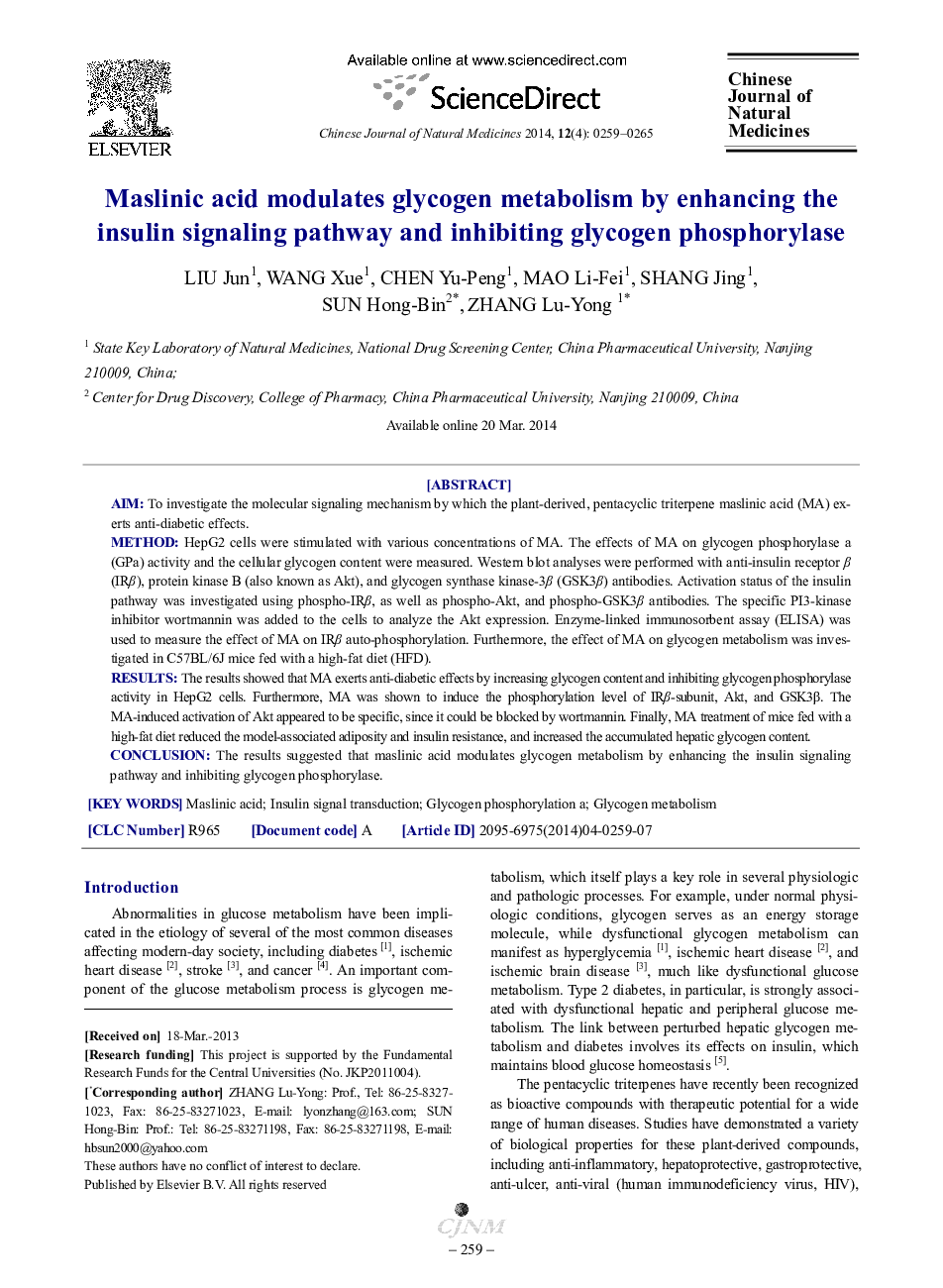| Article ID | Journal | Published Year | Pages | File Type |
|---|---|---|---|---|
| 2526402 | Chinese Journal of Natural Medicines | 2014 | 7 Pages |
AimTo investigate the molecular signaling mechanism by which the plant-derived, pentacyclic triterpene maslinic acid (MA) exerts anti-diabetic effects.MethodHepG2 cells were stimulated with various concentrations of MA. The effects of MA on glycogen phosphorylase a (GPa) activity and the cellular glycogen content were measured. Western blot analyses were performed with anti-insulin receptor β (IRβ), protein kinase B (also known as Akt), and glycogen synthase kinase-3β (GSK3β) antibodies. Activation status of the insulin pathway was investigated using phospho-IRβ, as well as phospho-Akt, and phospho-GSK3β antibodies. The specific PI3-kinase inhibitor wortmannin was added to the cells to analyze the Akt expression. Enzyme-linked immunosorbent assay (ELISA) was used to measure the effect of MA on IRβ auto-phosphorylation. Furthermore, the effect of MA on glycogen metabolism was investigated in C57BL/6J mice fed with a high-fat diet (HFD).ResultsThe results showed that MA exerts anti-diabetic effects by increasing glycogen content and inhibiting glycogen phosphorylase activity in HepG2 cells. Furthermore, MA was shown to induce the phosphorylation level of IRβ-subunit, Akt, and GSK3β. The MA-induced activation of Akt appeared to be specific, since it could be blocked by wortmannin. Finally, MA treatment of mice fed with a high-fat diet reduced the model-associated adiposity and insulin resistance, and increased the accumulated hepatic glycogen content.ConclusionThe results suggested that maslinic acid modulates glycogen metabolism by enhancing the insulin signaling pathway and inhibiting glycogen phosphorylase.
